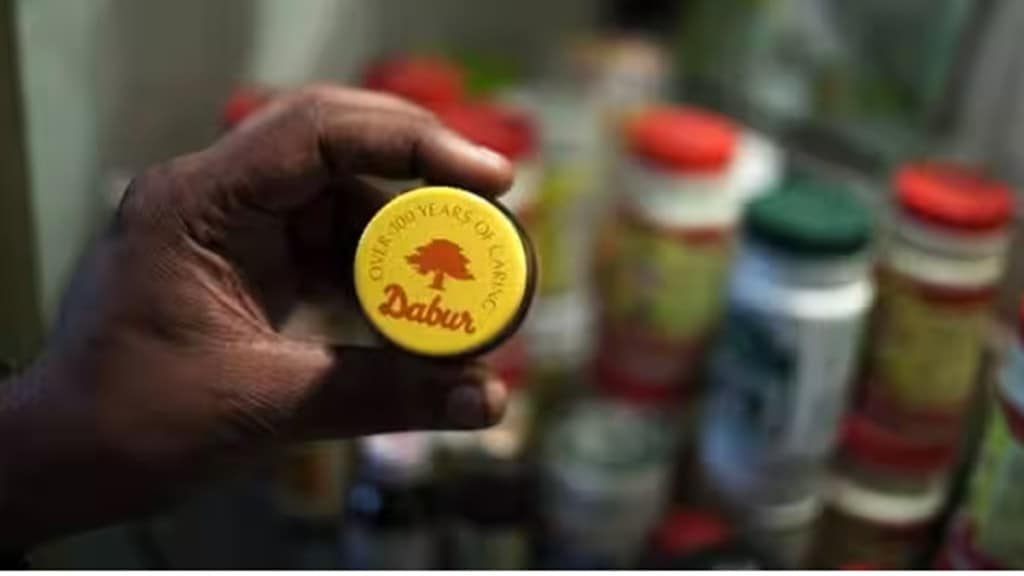Many Indians start their day with a spoonful of Dabur Chawanprash, an Ayurvedic immunity booster. For people who are put off by the product’s gooey consistency, the firm has introduced Chawanprash capsules. That’s not everything. There is a sugar-free variant of Dabur Chawanprash available for diabetics and a jaggery variant for those wanting the goodness of palm sugar. The company has also launched a powdered variant of Chawanprash for those seeking convenience and ease of consumption.
The Rs 11,530-crore Dabur India (consolidated revenue), amongst the oldest Ayurvedic companies in the country, is putting in place a strategy to draw younger consumers into its fold. The 138-year-old brand is prioritising e-commerce, direct-to-consumer channels, newer product formats and modern packaging to stay relevant to youth.
“The aim,” as Dabur India’s CEO Mohit Malhotra explains, “is to increase the addressable market of the company and remain contemporary to consumers.”
“There are multiple legs to this. One is the route-to-market strategy, the second is product format and variants and the third aspect is communication and packaging,” Malhotra says of the company’s modernisation drive, adding that he sees this as a “virtuous cycle” to remain future-fit.
For instance, Dabur’s total spends on digital advertising today constitutes 33% of its total advertising spends. Five years ago, this number was around 5-6% of its total ad spends, Malhotra says.
At a broader level, the company, say analysts, is hoping to touch Rs 7,000 crore in turnover in home and personal care within the next few years from Rs 3,846 crore reported in FY23 within its domestic business (constitutes 75% of consolidated topline). The company is hoping to achieve this by getting more consumers into its fold, G Chokkalingam, founder at Mumbai-based Equinomics Reseach and Advisory, says.
The Ghaziabad-based company is also aiming for Rs 5,000 crore in topline in healthcare from Rs 2,581 crore reported in FY23. While the third vertical – food & beverages – reported a turnover of Rs 1,724 crore in FY23, with the firm aiming for Rs 2,000-3,000 crore in topline in the future.
To ensure these targets are achieved, the company is pressing key levers of growth. This includes pushing its eight power brands within its domestic business including names such as Dabur Chyawanprash, Dabur Honey, Dabur Honitus, Dabur PudinHara, Dabur Lal Tail, Dabur Amla, Dabur Red Paste and Real fruit juice. Vatika is Dabur’s international power brand offering a range of personal care products for global audiences.
While Dabur Red Paste, Dabur Amla and Vatika are between Rs 1,000 to Rs 1,500 crore in turnover, Dabur Chawanprash and Dabur Honey are between Rs 500 crore to Rs 1,000 crore in terms of size. And Dabur Real is aiming for the Rs 2,000-crore-mark in terms of turnover in the next few years from Rs 1,600 crore now.
Within distribution, the e-commerce vertical, says Malhotra, contributes around 10% of the company’s overall sales. The plan is to take this number up to around 15-20% in the next few years, backed by an aggressive push online (through third-party websites/marketplaces) as well as a direct-to-consumer approach through the company’s online shop.
At the same time, the company is also working with its existing modern trade partners (such as Reliance Retail) to help understand shopper behaviour, push relevant products and help manage inventory real-time. This strategy is also being deployed within general trade.
To tap into newer product formats and variants, Dabur, explains Malhotra, is putting its heart to the ground, doing dipsticks and consumer research to map out what will click or not click with the target audience. While the company
For instance, Odomos mosquito repellents are now available in convenient sprays, lotions, roll-ons and gels apart from creams to improve brand saliency. The company has already launched body washes and soaps under its Gulabari brand apart from aerosols under Odonil air fresheners. It has also expanded its Real fruit drinks brand into plant-based drinks like soya and almond, aerated fruit beverages, milkshakes, coconut water, and peanut butter. It has also forayed into ready-to-cook gulab jamun mix with the brand Hommade.

